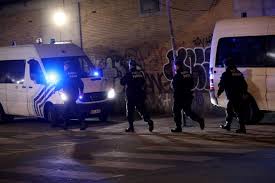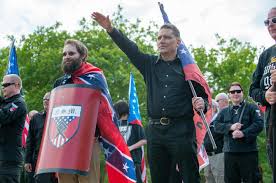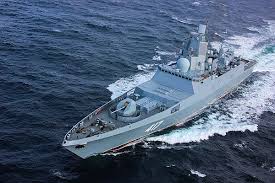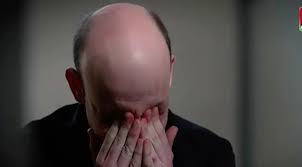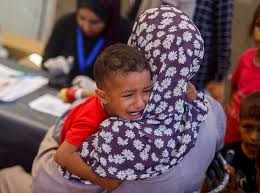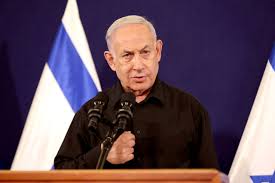F.P. Report
LISBON: Speaking at the NATO Parliamentary Assembly’s Annual Session in Lisbon on Monday (11 October 2021), NATO Secretary General, Jens Stoltenberg, reiterated the importance of a strong commitment to NATO and the transatlantic bond.
“Allies do not always agree on every issue”, acknowledged the Secretary General, “but ultimately, we all agree on what really matters: that we are stronger when we stand together”, he added. In his speech, Mr. Stoltenberg indicated that the NATO Parliamentary Assembly “has been a strong voice for our democratic values, and we need to recommit to them as we continue to adapt our Alliance”. He called on parliamentarians’ continued support and engagement to help turn the NATO 2030 decisions into action, including by keeping defence spending up.
We met last week and now we meet again, so this is really good for our friendship, that we continue to meet every week on both sides of the Atlantic. And also thank you for the way you lead this very important assembly which is important for the whole Transatlantic family and for building NATO as a stro-nger and stronger Alliance.
In Afghanistan we stood together for 20 years. And together, we took the decision to leave, after extensive rounds of consultations. It was not an easy decision. Because we faced a dilemma. To stay and risk renewed combat and an open ended military presen-ce. Or to leave and risk the Taliban returning to power.
The Taliban’s return to Afghanistan is a tragedy for the Afghan people. And heart-breaking for all of us who supported them over all the years. I am deeply grateful to all who served under the NATO flag. The investment and sacrifices we made were not in vain.
For 20 years, no terrorist attacks have been launched from Afghanistan on our countries. And our military presence helped create the conditions for significant social and economic progress.
Looking ahead, the international community must preserve these gains. And continue to bring Afghans at risk to safety. We must use all the leverage we have to hold the Taliban accountable for their commitments. Includ-ing on safe passage, human rights, and terrorism.
At NATO, I have launched a thorough assessment of our engagement in Afghanistan. To learn the lessons. Because by learning we adapt. It is too early to conclude the outcome of this process, but one thing is clear: the crisis in Afghanistan does not change the need for Europe and North America to stand together in NATO.
In fact, the need for transatlantic unity is bigger now than it has been at any time since the end of the Cold War. Because the challenges we face are far greater than any country, or continent, can tackle alone.
Russia is responsible for aggressive actions against its neighbours. A massive military build-up from the Barents Sea to the Medit-erranean. And attempts to interfere in our democracies.
China is assertively using its might to coerce other countries and control its own people. And China is coming closer to us.
In Africa, in the Arctic and in cyber-space. And by investing in our own critical infrastructure, from 5G networks to ports and airports. And other threats are emerging. Including cyber-attacks, disruptive technologies, nuclear proliferation and climate change. Brutal terrorism continues to exist as a real threat.
So, we must strengthen NATO. That is exactly what our leaders decided to do at the Summit in June. They agreed NATO 2030 – an ambitious agenda for our future security.
This includes increasing national resilience, to make our societies, infrastructure and supply chains less vulnerable to attacks.
Boosting our cyber def-ences. Investing in the latest technologies, and addre-ssing the impact of climate change on our security.
Together, we will continue to tackle instability, fight terrorism, and safeguard the rules-based international order, by stepping up training and capacity-building for partners.
And deepening our relations with other countries, international organisations, the private sector and academic institutions.
One partner is of particular importance for our Alliance and we are cooperating ever more closely with the European Union.
And I am glad to be wo-rking with President Ursula von der Leyen and Presid-ent Charles Michel on a new Joint Statement, to further strengthen NATO-EU relations, to be ready before the end of this year.
I strongly welcome the EU’s increased efforts on defence. NATO has been calling on European Allies to invest more and provide more high-end capabilities for many years. But these efforts should not duplicate NATO. Our nations have finite resources, and only one set of forces. And we need to use them in the best possible way.
Delivering on the NATO 2030 decisions requires pr-oper funding. We are on the right track, with seven consecutive years of increased defence spending by Euro-pean Allies and Canada. Including by Portugal, as all other European Allies. It is essential to keep up this momentum. For this, I count on your continued support. Because you are the ones who ultimately decide our defence budgets. It is not only about spending more. It is also about doing so together.
More common funding is a force multiplier. An in-vestment in the transatla-ntic unity. And a strong me-ssage of our unity and reso-lve. So we need to increase NATO’s common funding, based on requirements.
Finally, as part of NATO 2030, we also agreed to develop NATO’s next Strategic Concept. It will give us an opportunity to chart the way ahead for the Alliance, and reaffirm the centrality of the transatlantic bond to our security and our defence. It provides us also with the opportunity to recommit to our core values, democracy, the rule of law and individual liberty.
Our leaders will endorse the next Strategic Concept at the Madrid Summit in 2022.

